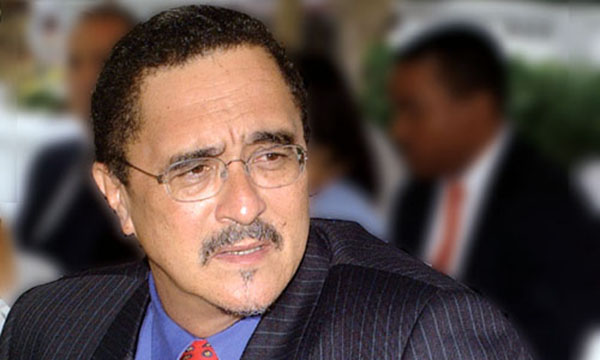By Nicole Best
Caribbean Correspondent
NASSAU, Bahamas CMC – Caribbean countries have told the International Monetary Fund (IMF) and other international lending agencies that the region should not be lumped with other nations and classified as middle income countries.
Bahamas Prime Minister, Perry Christie, told an IMF sponsored conference, that ends here Friday, that the region’s peculiar circumstances were not well known to the wider international community.
“There is a degree to which they do not understand the dynamics of your country and you are compelled to try and get that across,” Christie said.
“Whether the World Bank likes it or doesn’t like it, I have areas in my country which are no different from areas in those countries who have not graduated,” he told the meeting being attended by several Caribbean finance ministers, some of whom are also heads of government.
St. Lucia’s Prime Minister, Dr. Kenny Anthony, told the Caribbean Media Corporation (CMC) that “sometimes we are judged by criteria that are of no immediate relevance to our circumstances and to our environment; and part of the issue that we have is to explain to the wider world, what are these real circumstances.
“When you are talking about graduation to middle-income countries, you are talking about graduation in a context where countries have 30 percent unemployment…now how realistic is that kind of graduation in that kind of environment?”
Anthony said the time has come for the region to stop orating their peculiarities and advocating in the wider world for their right to receive some special treatment in regard to the conditions laid down for the region by the international agencies.
“The problem is we are great orators, but not great advocates and by that I mean we do not go out to the rest of the world and advocate the causes of what matter to us; we don’t explain ourselves.
“We have to invest far more (in advocacy) so that even the IFCs would have a better understanding of the challenges that face us,” Prime Minister Anthony said.
A senior public servant in Grenada, Timothy Antoine, echoed the sentiments of the regional leaders, saying “there cannot be big country solutions for small states”.
International funding agencies including the IMF and the World Bank have reclassified and ‘graduated’ Caribbean countries to middle income states resulting in a reduction of the aid they receive as well as increased stringent conditions attached to loans.
Antoine said that “the international financial institutions look at numbers, they look at per capita income” and that “the averages do not tell the full story.
“And on top of that we live in a very vulnerable region; vulnerable to natural disasters and external shocks because of our small size.”
He said the regional leaders are indicating that “the design of policies…must take into account our realities; there cannot be big country solutions for small states”.
But IMF’s Deputy Director of the Western Hemisphere Department, Adrienne Cheasty, said the dialogue has begun.
“One of the things I really like about the Caribbean is that the policy makers are really frank; when they think we’re not doing something right, they tell us…and so we listen because we want to get it right.”
However she said the challenge for the Fund is to be fair across the board to all the countries it serves.
“One of the things that’s a bit constraining, is the IMF is a universal institution; we have to treat every country equally. So I think sometimes what they may perceive as you’re applying standards to us that means you don’t understand that we need special treatment, is because we can’t be more easy with one country than another. We have to be super fair everywhere,” Cheasty said.
She said that the IMF has an emergency facility for natural disasters but is looking at how and if it can do more for small island states.
“We are trying to understand the economic validity of the saying that these problems are somehow substantively different as opposed to just a degree more challenging than the problems of large states.”
The IMF Division Chief of the Western Hemisphere Department, George Tsibouris is convinced that the Fund is working closely with the region and that the two-day forum here is a demonstration of the IMF’s commitment to get to the bottom of the problems of the region.
“I think we are very closely engaged with the Caribbean countries. I think we dedicate a lot to the Caribbean countries – first in terms of staff but also in terms of technical assistance that we provide.
“This forum is yet another manifestation of the IMF’s interest in fully grasping and fully capturing and fully absorbing the sentiments of the countries of the Caribbean,” Tsibouris added.
 Pride News Canada's Leader In African Canadian & Caribbean News, Views & Lifestyle
Pride News Canada's Leader In African Canadian & Caribbean News, Views & Lifestyle





